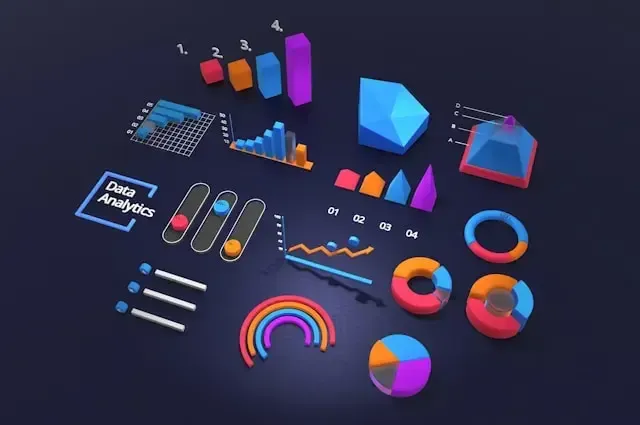Unlock the secret to flawless online streaming, gaming, and downloading with our guide, “Stream, Game, Download: Choosing the Perfect Internet Speed for Your Needs.” Tailor your internet plan for uninterrupted entertainment and productivity. Dive in and experience the difference the right speed makes!
With the internet becoming more integrated into every person's daily life, a stable internet connection is no longer a luxury, it is a vital need. However, unfortunately, there are many different internet service providers (ISPs) all offering their own set of options and speeds, which can make selecting the right one a completely baffling idea. Fear not, fellow netizen! This extensive guide will equip you with all the information necessary for you to be able to navigate the complicated process of choosing an internet plan type according to your needs.
Understanding the Metrics:
Mbps and ThenTo begin, we will simplify the technical language. The data transfer of the Internet is measured in Megabits per second (Mbps). It is same as the total amount of information that your connection can send per second. The higher Mbps, the faster data transfer will occur. Nevertheless, Mbps is only a part of the jigsaw. undefined
- Download Speed
This is the speed at which your device will get data from the internet, which includes activities like downloading, browsing web pages and streaming videos.
- Upload Speed:
This mean your device transfer data to the internet quickly and therefore necessary for video conferencing, online games and uploading content.
- Latency (Ping):
In the unit of ms (milliseconds) called latency, the time it takes for data to travel between your device and the server you're connected to is measured. Low latency means the Internet responds and moves more precisely leading to a smoother and more responsive online experience, especially for gamers.
- The Activity Matrix:
Establishing Affinity with Speeds undefined
Basic Browsing and Email: Casual surfing, email checking, and social media use are fast with little to no bandwidth requirements. A speed of 3-5 Mbps will be enough.
- Streaming:
The streaming services like Netflix and Youtube offer different speeds that are based on the video quality. In a nutshell, SD clocks in at 3 Mbps, HD goes up to 5 Mbps, and UHD needs a whopping 25 Mbps to ensure a smooth visual experience.
Gaming
Internet speed is a particular issue with online gaming. Here's a breakdown:
- Casual Online Gaming (MMORPGs, turn-based strategy):
A minimum of 3 MB/s download and 1 MB/S upload is recommended, but higher speeds provide better performance.
- Competitive Online Gaming (first-person shooters, real-time strategy):
Aim for 25 Mbps for download and 5 Mbps for upload to have zero delay gameplay and gain the edge. Moreover, aim at the latency of 50ms or less for lightning-quick response times.
- Downloading Large Files:
Downloading large files like games or software demands longterm connectivity. A minimum of 10 Mbps threshold is suggested, above which a considerable reduction in downloading times is observed.
Beyond Mbps: Important Factors
Mbps is indeed a critical parameter, but it is not the only factor that affects your time online. undefined
- Number of Connected Devices:
More and more we find our homes jam-packed with appliances that are addicted to the Internet. When you have more than one user streaming, gaming, and downloading at the same time, it is preferable to have a high Mbps or bigger bandwidth plan so you can avoid bottlenecks and buffering problems.
- Data Caps:
Some ISPs set data caps, restricting you to the total amount of data you can download in a month. If you are a family of data junkies, go for an unlimited data plan to avoid surprise fees.
- Fiber vs. Cable vs. DSL:
The type of internet connection that you get also affects the speed. Fiber is the fastest and most reliable, while cable runs next. However, DSL is the slowest alternative, but this could be the only available option in some areas.
Optimizing Your Connection:
Reduce Background Applications: Shut down any running processes that eat up your available network bandwidth in the background.
- Utilize Wired Connections:
Wherever it applies, use an ethernet cable to connect your devices directly to your router for a more stable connection instead of using Wi-Fi.
- Position Your Router Strategically:
Put your router in the central part of your home so that it can provide the most Wi-Fi signal.
The Final Verdict: It is all about you.
Eventually, choosing an internet speed comes down to you as a person and your budget. Through learning how several variables interact, you will be able to take an informed decision. Conversely, keep in mind that there is no magic formula. If you are surfing the web casually, simple plan can be sufficient. However for gamers, streamers or a household that consumes lots of data, it is cheaper to get higher-tier plan. Have no hesitation, and contact various ISPs while comparing the plans, in order to identify the one that well suits your digital life.
Beyond the Basics: Additional Factors
This guide covers the basics of internet speed in order to accommodate general types of activities. undefined
- Virtual Reality (VR) and Augmented Reality (AR):
These futuristic technologies rely heavily on the network to have seamless and immersive experiences. Although particular demands are yet to be developed, the experts envisage VR with at least 100 Mbps download speeds and low latency that will make it an impeccable experience.
- Cloud Gaming:
Services like Google Stadia and Microsoft xCloud are what you need to stream high-end games without actually downloading them. These platforms rely on strong broadband connections, preferably being much more than 50Mbps download speed for the best speed.
- Smart Homes and Internet of Things (IoT):
With the extension of the home into the smart devices, the total network busyness will consequently increase. Think of the future by selecting a plan that can handle more connected devices as the number of such devices grows.
Understanding Your Needs: A Self-Assessment Tool
Number of Users: Will be as many people in your family using the internet at the same time?
- Internet Activities:
What do you tend to do online the most? (e. g. , with streaming media, gaming, downloading, and browsing).
- Device Usage:
How many devices will connect to the internet for one time? (e. g. (mobile phone, laptops, tablets, smart TVs, etc.).
- Streaming Preferences:
What video quality do you think is best for streaming services? (e. g. , SD, HD, UHD)
- Gaming Focus:
Do you play online games for fun or to compete as a hobby? Through the honest assessment of these factors, you will efficiently attain what your internet usage pattern is and the corresponding speed.
Negotiating with ISPs and Finding The Best Deals
The internet service provider market is a contest. Don't hesitate to haggle your current ISP or search for deal offers from other operators.
Bundle Services: A majority of ISPs present their customers bundled packages that include internet in combination of phone or cable TV services. Sometimes, the bundles will have better value.
Promotional Offers: Search for promotional offers that might include short-time discounts or free upgrade to higher level plans.
Compare and Contrast: Utilize comparison tools online or call multiple ISPs in order to compare the planned, speed and price before making a choice.
The Takeaway: A Cutting-edge Connection
The web is now the linchpin of our existence. How to determine your particular needs and assess the factors influencing speed helps you pick a plan that serves you well today, and also will accommodate you as you advance with the digital world. Do not forget, a future-proofing connection is investing into your digital well being which in turn gives you an experience free from any interruptions for many years.
Technological Progress and the Internet Speed of the Future
The internet is always changing, and the new cravings for better connections. Technologies such as artificial intelligence (AI), cloud computing, and even autonomous vehicles are examples of the applications that will demand for faster and more reliable internet speeds. Experts believe that the future will be reached when internet speeds will be measured in Gigabits per second or Gbps which implies a tenfold increase of the existing ratio. In order to deal with what is to come, make a choice between fiber optic connection or a plan with upgrade options. On the one hand, the upfront costs may be more expensive, but these connections provide the scalability and reliability for the bandwidth hungry applications of the future. Furthermore, you should keep current with the newest internet access tech developments like 5G and satellite internet that could widen availability and speeds in the years to come. Recall that selecting the appropriate internet speed is not just about meeting current requirements, but rather it is also about developing a groundwork for a future where the immersive and connected nature of our online activities will be further advanced.
Conclusion
From the extensive guide, you will now know how to deal with the complexity of the internet service choices in the market. Knowing your requirements, considering your future goals and reviewing the different plans you have available informs your decision that is all about strengthening your digital life. Do not forget that your internet connection stability and speed doesn't only provide you with internet services, but rather, is the gateway that leads you to new opportunities and choosing the right one is an investment on the future of your digital life. In conclusion, do not compromise on connectivity speed. Instead, embrace the wonderful worlds of the internet by choosing the best speed that propel your online life today and take you to the exciting digital field of tomorrow.


























